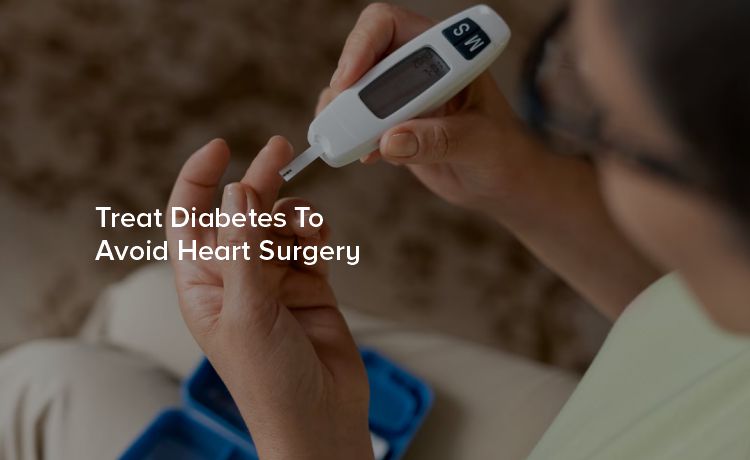
Diabetes is more than just a metabolic disorder; it's a precursor to a myriad of health complications, with heart disease leading the pack. The World Health Organization estimates that individuals with diabetes are two to four times more likely to experience various cardiovascular conditions, such as a heart attack or stroke. Yet, these dire statistics aren't just numbers—they represent the lives and well-being of those in our communities. It's time to discuss the critical link between diabetes and heart disease and empower you with the knowledge to make informed health decisions that could well spell the difference between life and death.
Diabetes—particularly Type 2—is a disorder characterized by the body's inability to regulate blood sugar levels effectively. Over time, uncontrolled high blood sugar can damage the blood vessels and the nerves that control your heart. Additionally, diabetes significantly increases the risk of developing atherosclerosis, a condition where arteries become clogged with fatty deposits that hinder blood flow to the heart.
When unchecked, atherosclerosis can lead to catastrophic cardiovascular events, such as a heart attack, heart failure, or peripheral artery disease. This clogging process starts subtly, often without symptoms, but can escalate rapidly when combined with other risk factors like high blood pressure and abnormal cholesterol levels—hallmarks of the diabetic condition.
Monitoring your blood pressure, cholesterol, and blood sugar levels is critical. Keeping them within the values recommended by healthcare professionals significantly reduces your risk of developing complications. This monitoring is not a one-off task but a lifelong habit, necessary for early detection and intervention.
One of the most powerful tools against diabetes and heart disease is our daily diet. The link between consuming excessive sugars and unhealthy fats with the development and exacerbation of these conditions is well-established. Shifting to a diet rich in fruits, vegetables, whole grains, lean protein, and healthy fats can remarkably improve your blood glucose control and lipid profile, thus safeguarding heart health.
Regular physical activity is a non-negotiable component of managing diabetes and preventing heart surgery. Exercise not only aids in weight management but also improves insulin sensitivity and can lower blood pressure. Starting with moderate forms of exercise, such as brisk walking or swimming, and gradually increasing the intensity can lead to substantial benefits for your heart and overall health.
Chronic stress and lack of quality sleep are often underestimated contributors to heart problems. Findings suggest that managing stress through techniques like meditation or yoga, and ensuring adequate sleep, are just as important for your heart as diet and exercise. These practices contribute to a lower risk of complications from diabetes and can enhance the effectiveness of other lifestyle changes.
For many, lifestyle changes are insufficient to manage diabetes alone. Medications, including insulin, play an integral role in controlling blood sugar levels. It's crucial to take these medications as prescribed to avoid the progression of heart disease.
Some diabetes medications have been shown to lower the risk of heart complications, whilst others, particularly those involving insulin, can lead to weight gain and higher cholesterol. Engaging in a dialogue with your healthcare provider about these risks and the potential of alternative medications is critical for long-term heart health.
Regular visits to the cardiologist for heart health assessments become increasingly important for individuals with diabetes. These assessments may include EKGs, stress tests, and imaging studies to detect any changes in the heart that might indicate the need for intervention before a major event occurs.
Diabetes-specific screenings like eye exams, kidney function tests, and peripheral artery examinations help manage damage to the body caused by high blood sugar levels. By addressing the complications early, you pave the way for a healthier life with a significantly reduced risk of heart surgery.
Being informed regarding your condition empowers you to make better decisions about your health. Understanding how diabetes can affect your heart and vice versa helps you appreciate the importance of managing both conditions effectively.
Educating your family members and close friends about diabetes and its associated risks can create a support network crucial for sticking to healthy habits. The changes you make influence those around you, potentially reducing the risk of diabetes-related heart disease for your loved ones as well.
The link between diabetes and heart disease is profound and multifaceted. By adopting a proactive approach to diabetes management, focusing on lifestyle changes, adhering to medications, staying diligent with health screenings, and constantly educating ourselves, we can significantly reduce the chances of heart surgery and its associated risks.
The road may seem long, and the destination uncertain, but every step you take towards a healthier life is a stride away from potential heart afflictions. Embrace the resources, support, and knowledge available to you, and remember that investing in your health today pays dividends for your tomorrows.
In conclusion, treating diabetes is not just about regaining control over blood sugar levels; it's about reclaiming the vibrant, heart-healthy life that diabetes seeks to erode. Take the reins and guide your health towards a future free from the shadow of heart surgery. With every meal, every heartbeat, and every precious day, make the choices that will keep you thriving. After all, your heart's future is in your hands. Experience top-tier cardiac care by booking an appointment with the best cardiologist in Hyderabad.